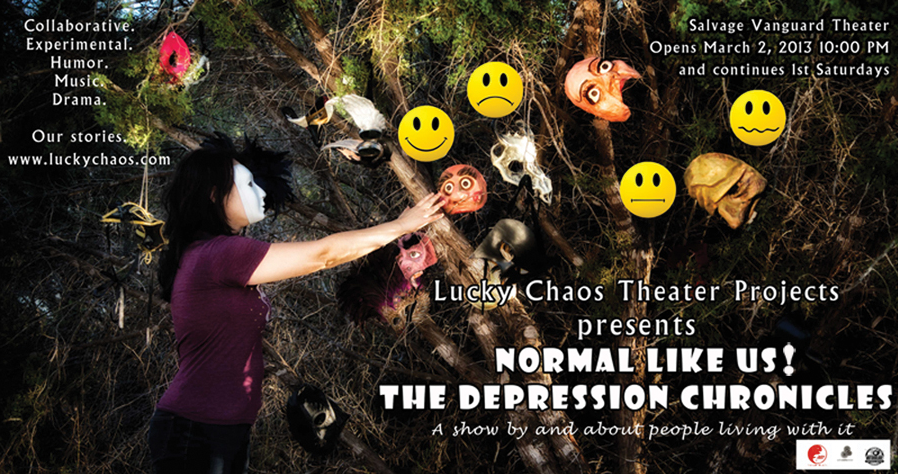Depression is impossible to describe in words. Any attempt to convey the experience in words ends up sounded clichéd. I have had the opportunity to try to explain my experiences in images in “The Depression Chronicles,” but the best portrayals of life with depression that I have ever seen have come from Allie Brosh, who writes the webcomic Hyberbole and a Half.
In October 2011, she wrote a post called “Adventures in Depression,” in which she described how she fell into a deep period of depression, with the attendant immobility and self-loathing. Her post captured the way someone suffering from depression can recognize the purposelessness of it, while remaining powerless to do anything about it.
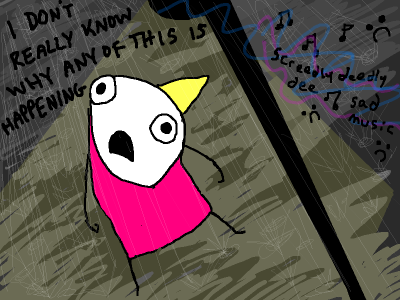
She goes on to describe how her depression “got so horrible that it actually broke through to the other side and became a sort of fear-proof exoskeleton.”
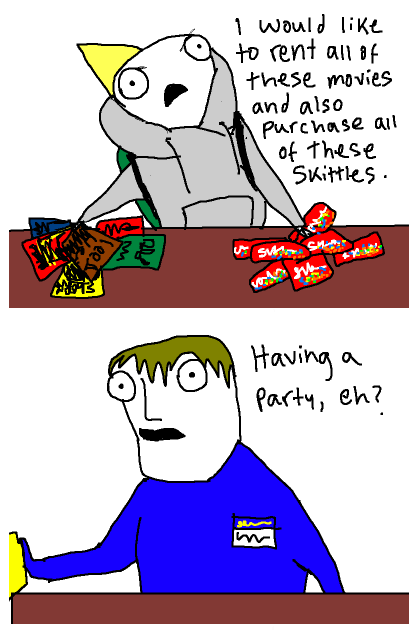
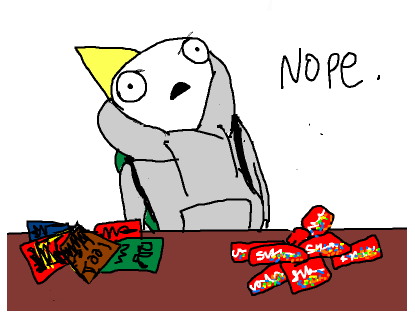
Then she basically disappeared from the internet for over a year.
She returned the other day with a follow-up post, “Depression Part Two,” that offers perhaps the best analogy for depression I have ever seen.
I remember being endlessly entertained by the adventures of my toys. Some days they died repeated, violent deaths, other days they traveled to space or discussed my swim lessons and how I absolutely should be allowed in the deep end of the pool, especially since I was such a talented doggy-paddler.
I didn’t understand why it was fun for me, it just was.
But as I grew older, it became harder and harder to access that expansive imaginary space that made my toys fun. I remember looking at them and feeling sort of frustrated and confused that things weren’t the same.
I played out all the same story lines that had been fun before, but the meaning had disappeared. Horse’s Big Space Adventure transformed into holding a plastic horse in the air, hoping it would somehow be enjoyable for me. Prehistoric Crazy-Bus Death Ride was just smashing a toy bus full of dinosaurs into the wall while feeling sort of bored and unfulfilled. I could no longer connect to my toys in a way that allowed me to participate in the experience.
Depression feels almost exactly like that, except about everything.
[Emphasis added, and pictures omitted.] Seriously, go read the whole post. The pictures are the key, but I don’t want to copy too many of them here.
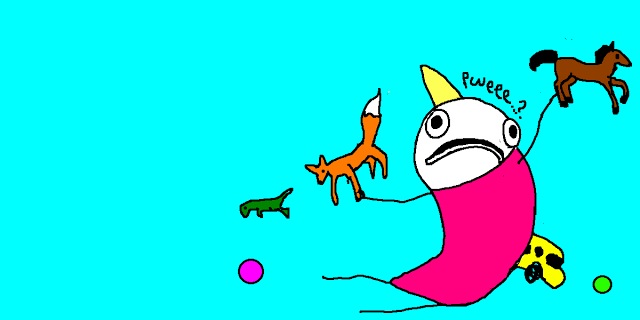
Depression has social stigma, to be sure, but the difficulty goes beyond that. Even if you don’t have a sore throat, or have never had a sore throat somehow, you can probably imagine the difficulties faced by someone with a bad case of strep throat. Everyone has bad moods, or gets in funks, but not everyone (most people, actually) have difficulty relating to a major depressive episode. I doubt that my experiences even remotely compare to those described in Brosh’s posts.
Clark, a blogger at Popehat, calls depression a color most people cannot see:
Depression is hard to talk about. I don’t mean “there’s a social stigma to it”, although that’s true. I don’t mean “modern society calls minor mood swings ‘depression’ and medicates them with lifestyle drugs, so the depths of true depression are hard to convey to someone”, although that’s also true.
I mean that depression is a color, and people who haven’t experienced it are color blind to its hue. There are no words to bridge the gap, to make it clear.
Much like Clark, I cannot add any words of real wisdom to what Allie Brosh has to say about her experiences. She faced the prospect of suicide and, for reasons that may not make sense to many, and that I wish did not make sense to me, is still here. I am very grateful for that.
If you need help, or know someone who does, help is out there: National Suicide Prevention Lifeline, 1-800-273-TALK (8255).
Photo credits: All pictures are by Allie Brosh [CC BY-NC-ND 3.0 US].


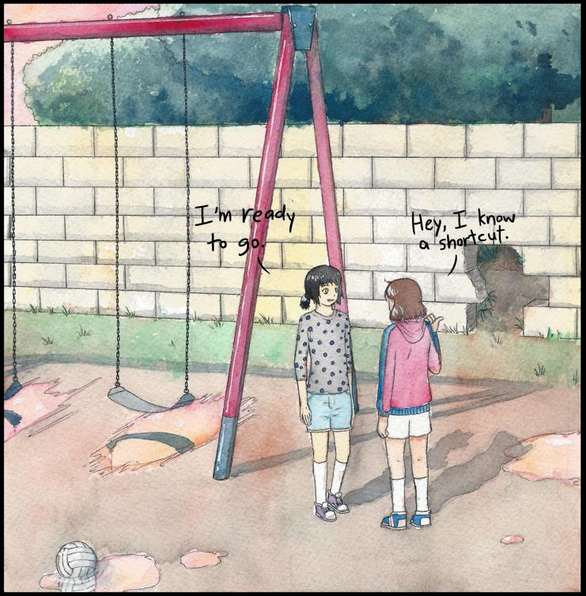
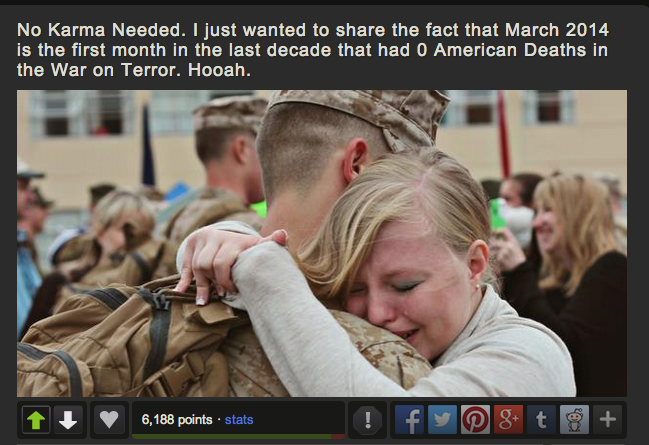
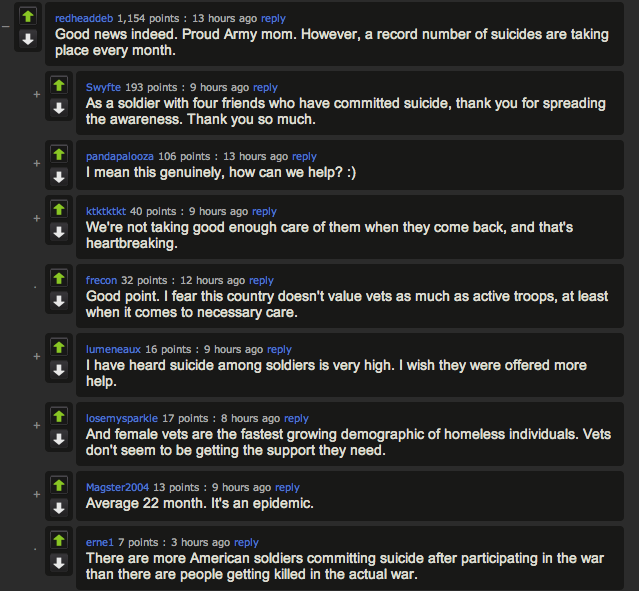

![By Jacrews7 (Flickr: On The Floor Texting) [CC-BY-2.0 (http://creativecommons.org/licenses/by/2.0)], via Wikimedia Commons By Jacrews7 (Flickr: On The Floor Texting) [CC-BY-2.0 (http://creativecommons.org/licenses/by/2.0)], via Wikimedia Commons](http://crypticphilosopher.com/wp-content/uploads/2014/01/On_The_Floor_Texting-300x232.jpg)




